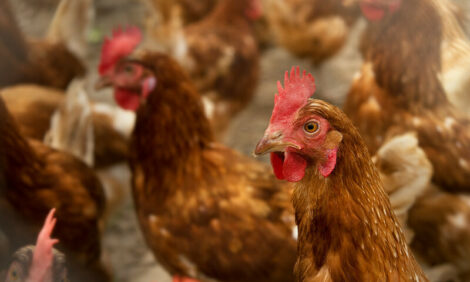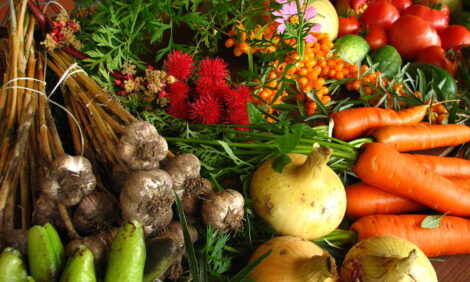



Wiesenhof Strengthens Commitment to Sustainability
GERMANY - Wiesenhof has strengthened its commitment to sustainability following the revelation that producing one kilo of its chicken meat emits 1.8kg of carbon dioxide, down from 3.2kg the previous year.Wiesenhof has succeeded in substantially reducing carbon dioxide (CO2) emissions in chicken meat production. Producing one kilo of Wiesenhof chicken meat (net slaughter weight) equates to 1.8kg of greenhouse gas (GHG) emissions, a significant reduction from the previous year.
The GHG emissions calculated relate to all production stages: feed production, parent stock husbandry, hatcheries, rearing farms and processing plants, including logistics to our trade customers. In the initial calculation based on figures from 2008, this product-specific carbon footprint, also known as Product Carbon Footprint (PCF), equated to 3.2kg of carbon dioxide per kilo of net slaughter weight.
Peter Wesjohann, Chairman of the PHW Group/Wiesenhof, said: "The previous figure and the data compiled from the relevant plants provided an excellent starting point for optimising our production and transport processes even further."
As the figure of 1.8kg for 2009 shows, the company has succeeded.
The method of calculation was extrapolated according to the latest scientific findings; it meets standard PAS 2050:2008 and has been verified by an international standards organisation.
Success is showing
Use of the biofuel SP-Power produced in house has had a positive effect. The PHW Group uses an alternative biofuel based on poultry fat for its lorry fleet, thereby cutting diesel consumption. By-products from poultry processing are turned into raw materials for generating bioenergy.
Mr Wesjohann explained: "The advantage of our biofuel is that it avoids competing in the 'food versus fuel' debate."
The standard recycling management principles followed by Wiesenhof have also had an impact on the company's latest carbon dioxide footprint: the use of poultry manure as (farm-produced) fertiliser is more environment friendly, as it means that fewer mineral fertilisers are used and thus fewer GHG emissions are produced during their manufacture.
The manure from the farm has a high concentration of nutrients, and is used as a fertiliser on fields and in the production of substrates for mushroom compost, in addition to being fed into biogas plants.
Optimising energy and logistics
The highest proportion of the emissions calculated comes from the feed mills, followed by the rearing farms and the slaughterhouses. The hatcheries and parent stock husbandry are responsible for the lowest share.
Wiesenhof sees energy and logistics as two areas where there is further potential for improving its emissions balance. A crucial step towards cutting GHG emissions is the switch to green electricity: since January 2011, Wiesenhof has been using electricity generated by wind power, which is 100 per cent carbon dioxide-neutral, in many of its plants.
With regard to logistics, Wiesenhof has invested large sums in its modern fuel-efficient lorries, laying the foundations of an energy-saving vehicle fleet.
Since December last year, Wiesenhof has been a sponsor and partner of the Zentrum für Nachhaltige Unternehmensführung (Center for Sustainable Leadership) or ZNU at Witten/ Herdecke University in Germany. This partnership enables Wiesenhof to strengthen its commitment to sustainability further and to establish an important foundation to meet its social responsibilities in the future.
Mr Wesjohann added: "In this way, we are supporting the ZNU as a pilot company in its efforts to develop a certified sustainability standard."











